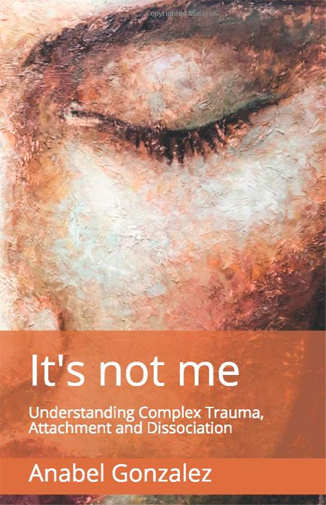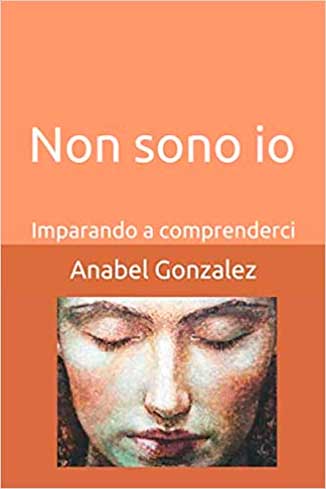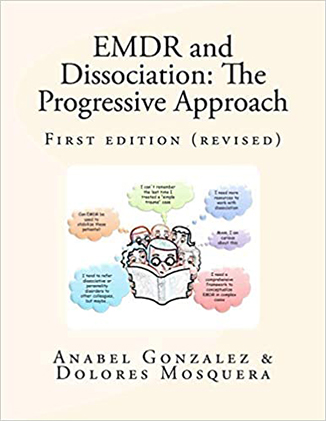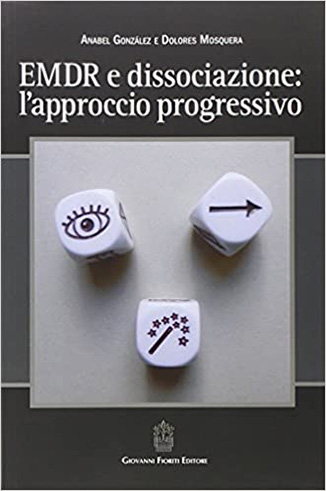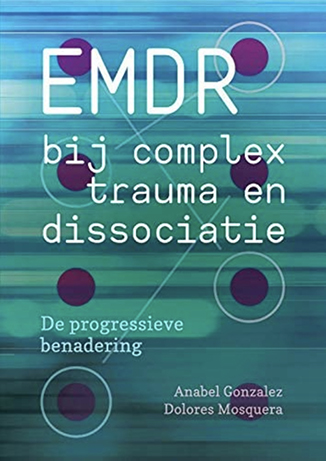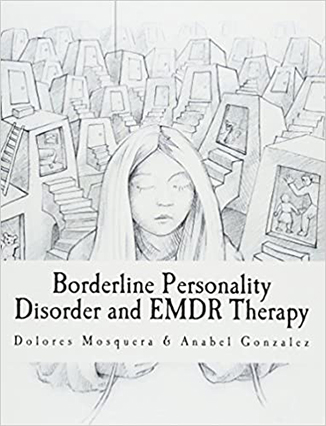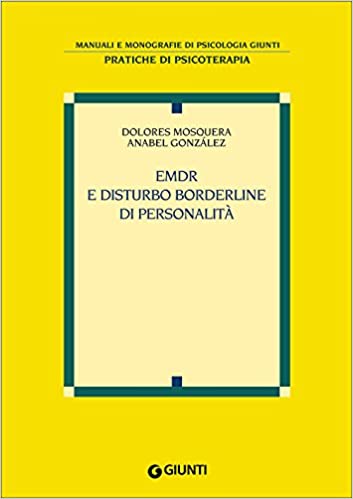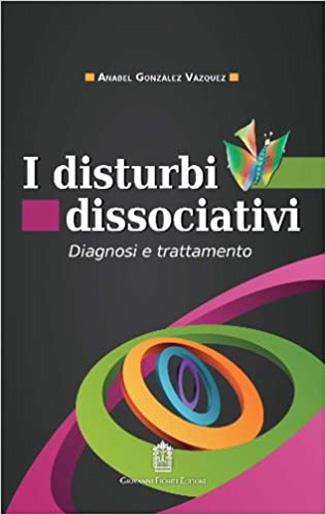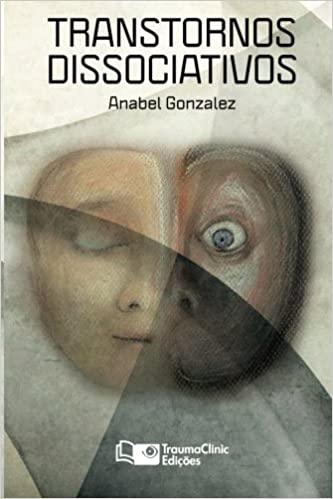Other Languages
It’s not me
Anabel Gonzalez (2018)
The aspects of our personality that we reject tell us a very important story. The way in which we define who we are – our identity – is shaped by the significant relationships in our life. If we have a history of complex relationships, whether it be with our parents, romantic partners or other significant figures, it can profoundly change the way we see ourselves.Our mind gets fragmented, and a deep conflict arises within us, which sometimes consumes a large part of our energy and keeps us from living a life that is fully satisfying. This book, which is aimed at patients and family members of people who have been through adverse situations that fit with what we call complex trauma, will present and explain some of the psychological problems that these situations can produce.Based on work done with patients who have a history of trauma or attachment disorders, different ideas are presented that can help overcome dysfunctional post-traumatic patterns.The aim of this book is to understand how the reactions that we have, which sometimes may be difficult even for us to explain, come from an accumulation of experiences and things we have learned, of which we may not even be fully aware. This book is about the psychological consequences of all these experiences, but mainly about our freedom to choose what we do with them.
Non sono io
Anabel Gonzalez (2018)
In ognuna delle sue forme di presentazione è importante che si comprenda la relazione tra i problemi attuali e la storia al cui interno si generarono. Altrettanto fondamentale è capire perché, a dispetto che questi problemi ci causino malessere e angoscia, e che vogliamo modificarli, si mantengano invece nel tempo. Sono frequenti in persone che abbiano vissuto in un ambiente traumatico la sensazione di essere incompresi e la difficoltà per comprendere ciò che è loro toccato vivere. Da un lato è mancato loro il sentirsi guardato con l’accettazione incondizionata di cui ha bisogno ogni bambino; dall’altro il mondo intorno a loro era troppo pieno di contraddizioni e paradossi, e nessuno ha fornito loro un senso a quanto stava succedendo nella loro vita. Come risultato di questi apprendimenti, sia nell’infanzia come nella vita adulta avranno grande difficoltà per comprendersi, accettarsi e dare una risposta equilibrata ai propri bisogni.Per tutto quanto esposto, l’obbiettivo di questo libro è di aiutare tanto i pazienti come i professionisti a comprendere perché si sviluppano e si mantengono questi problemi. Lo sguardo verso se stesso, e la capacità di connettersi con gli altri, all’inizio configurato per adattarsi a un ambiente ostile, devono essere riformulati completamente: dobbiamo imparare a guardarci con occhi nuovi; la prospettiva su noi stessi e il mondo ha bisogno di svilupparsi e rendersi flessibile. Se riusciamo a capire, possiamo iniziare a cambiare.
EMDR and Dissociation: The Progressive Approach
Anabel Gonzalez. Dolores Mosquera
EMDR is a psychotherapeutic approach developed for the treatment of PTSD, meanwhile, practicing clinicians have found the application of EMDR to be useful in treating patients who have experienced emotionally traumatic events, which they described as distinctive of their family-of-origin, their personal life history and their attachment relations. In this book the authors describe some of the basic aspects that therapists must understand in order to adequately apply EMDR in the more severe cases, including dissociative disorders, personality disorders and different types of complex traumatization.
EMDR e dissociazione. L’approccio progressivo
Anabel Gonzalez. Dolores Mosquera
Utilizzare la terapia EMDR solo per la rielaborazione dei traumi rappresenta l’approccio tradizionale ed è un intervento potente, ma l’EMDR ha molto di più da offrire. Questo libro si propone di espandere l’applicazione delle procedure EMDR evitando di ridurne l’applicazione solo a situazioni cliniche con pazienti in grado di installare il posto sicuro, di mettere in campo le proprie risorse e che hanno una buona regolazione emozionale e un sufficiente sostegno sociale. L’approccio progressivo descritto da Anabel González e Dolores Mosquera offre strumenti operativi per utilizzare l’EMDR anche con pazienti dissociativi, con aspetti traumatici complessi e che non sono in possesso dei requisiti precedentemente elencati: una novità che molti terapeuti attendevano da tempo.
EMDR bij complex trauma en dissociatie
Anabel Gonzalez. Dolores Mosquera
EMDR (Eye Movement Desensitization and Reprocessing) werd oorspronkelijk ontwikkeld als behandeling voor een posttraumatische-stressstoornis ontstaan na enkelvoudig trauma, zoals een ongeluk of natuurramp. De verschillende fasen van het EMDR-protocol zijn dan relatief eenvoudig te doorlopen. De toepassing van de standaard EMDR-aanpak blijkt echter een stuk ingewikkelder als het om cliënten met complex (vroegkinderlijk) trauma gaat. Toch is gebleken dat ook cliënten die emotioneel traumatiserende gebeurtenissen hebben meegemaakt binnen hun vroegste gehechtheidsrelaties, baat kunnen hebben bij een behandeling met EMDR. In dit boek worden de basistechnieken beschreven die therapeuten kunnen helpen om ook bij ernstigere gevallen van trauma (inclusief complex trauma, dissociatieve stoornissen en persoonlijkheidsstoornissen) adequaat EMDR te kunnen toepassen. Uitgewerkt wordt hoe EMDR in de behandeling kan worden geïntegreerd en welke variaties op de traditionele aanpak van EMDR nuttig kunnen zijn. Hierbij worden relevante begrippen uit de gehechtheidstheorie en recente onderzoeksbevindingen op het gebied van neurologische ontwikkeling samengebracht, waardoor een omvattend model ontstaat dat als leidraad kan dienen voor het toepassen van EMDR bij complex trauma en aan trauma gerelateerde dissociatie. Anabel Gonzalez is als psychiater en psychotherapeut werkzaam in de geestelijke gezondheidszorg en heeft daarnaast een eigen praktijk. Ze is EMDR-therapeut, -consultant en -facilitator. Als vicevoorzitter is ze verbonden aan de Spaanse EMDR-vereniging en ze is bestuurslid van de European Society for Trauma and Dissociation (ESTD). Dolores Mosquera is psycholoog, psychotherapeut en EMDR Europe-consultant en -facilitator. Als directeur is ze verbonden aan het Institute for the Study of Trauma and Personality Disorders (INTRA-P). Daarnaast is ze bestuurslid van de European Society for Traumatic Stress Studies (ESTSS). Ze staat bekend als een expert op het gebied van persoonlijkheidsstoornissen, complex trauma en dissociatie.
Borderline Personality Disorder and EMDR Therapy
Anabel Gonzalez. Dolores Mosquera
Borderline Personality Disorder and EMDR proposes a comprehensive framework for working with this complex group of clients. The theoretical background integrates attachment theory, structural dissociation, and the adaptive information processing model. Written in a very practical and clinically oriented style, BPD and EMDR covers different situations such as defensive strategies, unhealthy self-care patterns, rigid core beliefs, emotional dysregulation, self-harming behaviors, and relational problems. Therapists should address these issues in order to prepare clients for effective processing of traumatic memories. Working through the different phases of EMDR is described as a therapeutic alternative for borderline clients.
EMDR e disturbo borderline di personalità (Manuali e monografie di psicologia Giunti)
Anabel Gonzalez. Dolores Mosquera
EMDR e disturbo borderline di personalità” è un volume di utilità pratica non solo per i terapeuti con una formazione nel metodo EMDR, ma anche per coloro che lavorano in genere con i disturbi borderline. I pazienti con Disturbo Borderline di Personalità (DBP) costituiscono una popolazione estremamente complessa da trattare. Le sfide che i clinici devono affrontare quando lavorano con tali pazienti sono numerose e il percorso terapeutico può risultare tortuoso, incerto e faticoso. La vasta esperienza clinica delle autrici nel campo del DBP le ha portate a sperimentare in prima persona un gran numero di difficoltà, ma è proprio grazie ad esse che sono arrivate a strutturare un intervento, basato su una profonda conoscenza della metodologia EMDR, come quello descritto nel volume. Gli esempi clinici accompagnati da illustrazioni sono molto utili a comprendere il processo terapeutico.
Transtornos Dissociativos: Diagnóstico e Tratamento
Anabel Gonzalez.
Uma análise sobre controverso campo dos transtornos dissociativos, especialmente o Transtorno Dissociativo de Identidade (Múltipla Personalidade). Diferentes teorias sobre o assunto são apresentadas, bem como sua evolução conceitual e histórica. O texto está focado em aspectos clínicos e práticos. Fornecerá ao leitor ferramentas diagnósticas para identificar esses casos, que muitas vezes têm passado desapercebidos. A segunda parte do livro é dedicada à abordagem terapêutica, fornecendo guias gerais para a terapia de transtornos dissociativos, assim como técnicas específicas diretamente aplicáveis. O formato é muito claro e direto, além de estar ilustrado com diversos exemplos e casos clínicos.
Resources

EMO: Emotion regulation interview

Self-care scale
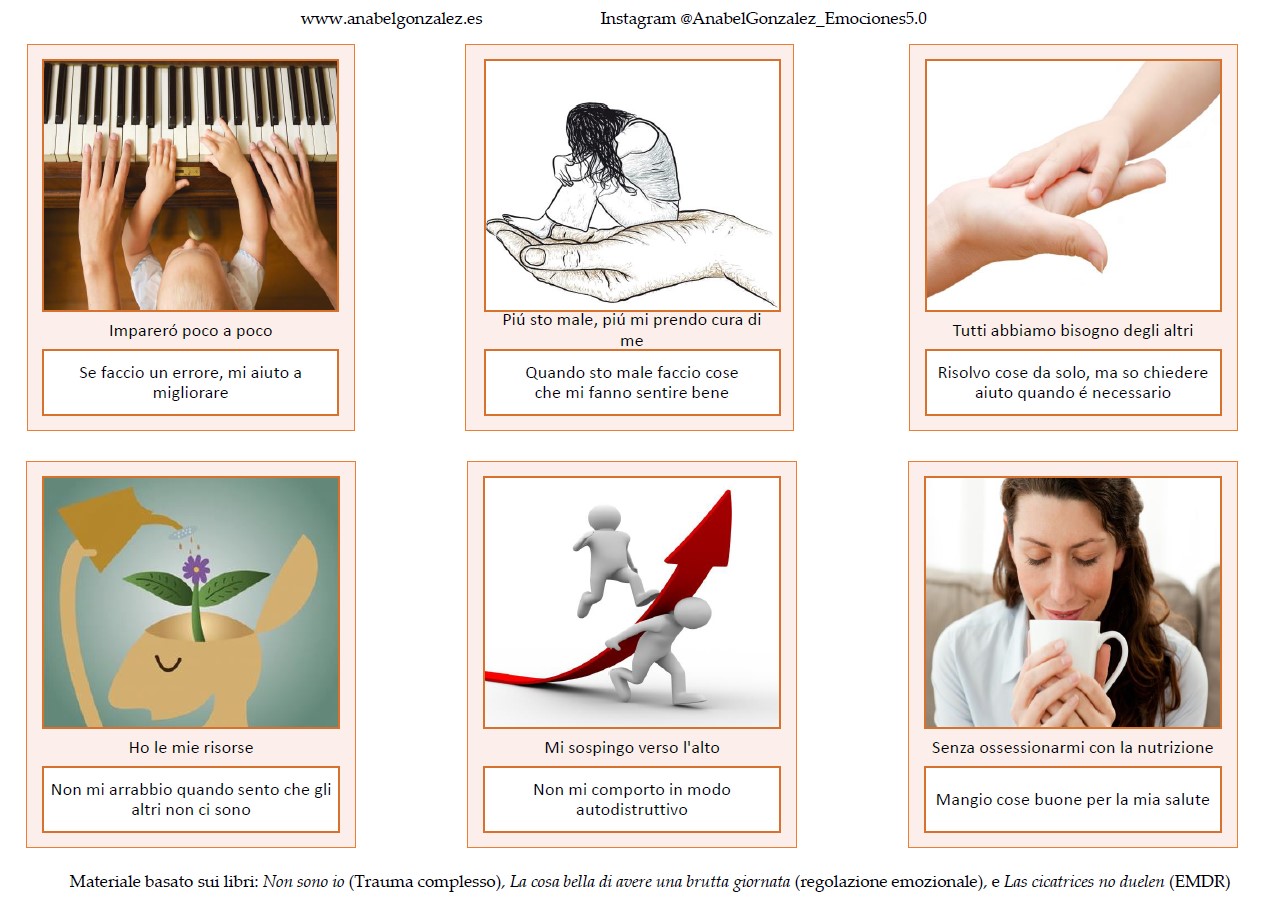
Therapeutic cards · Italiano
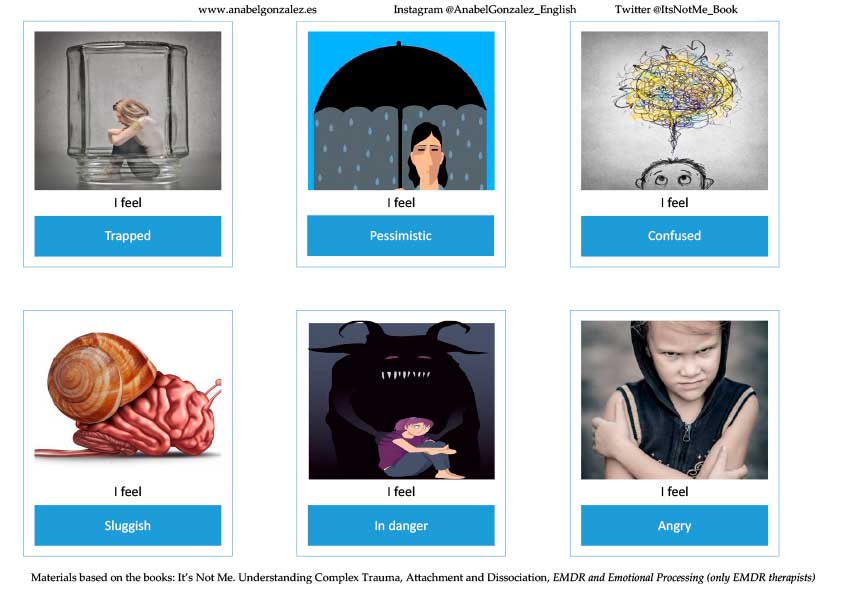
Therapeutic Cards · English
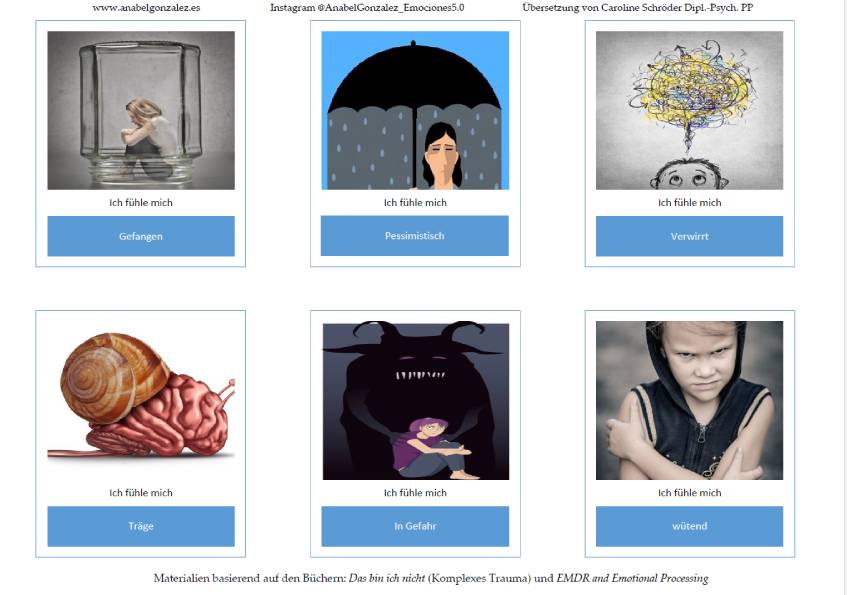
Therapeutic Cards · German
Beschützer Systeme
Emotionale Zustände
Ressourcen
Selbstfürsorge
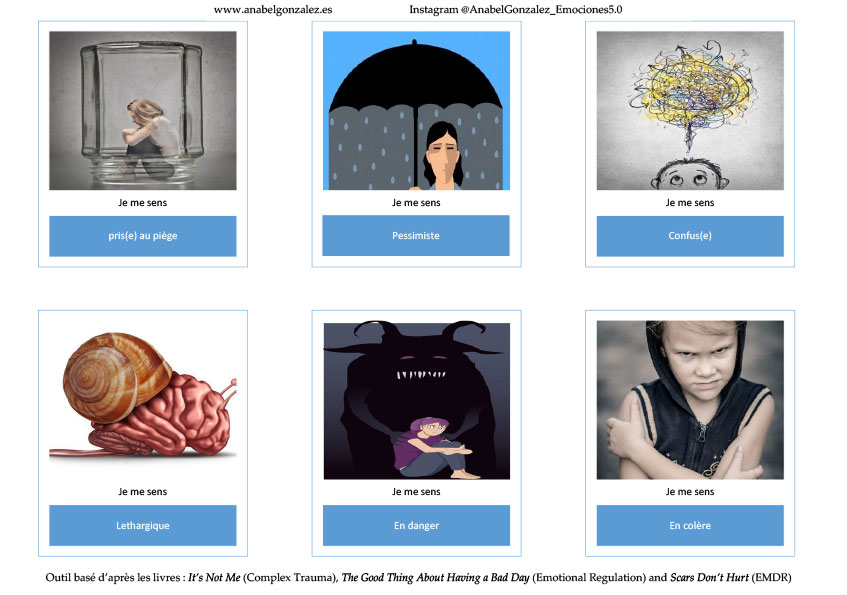
Therapeutic Cards · French
Etats emotionnels
Les ressources
Prendre soin de soi
Systèmes de protection
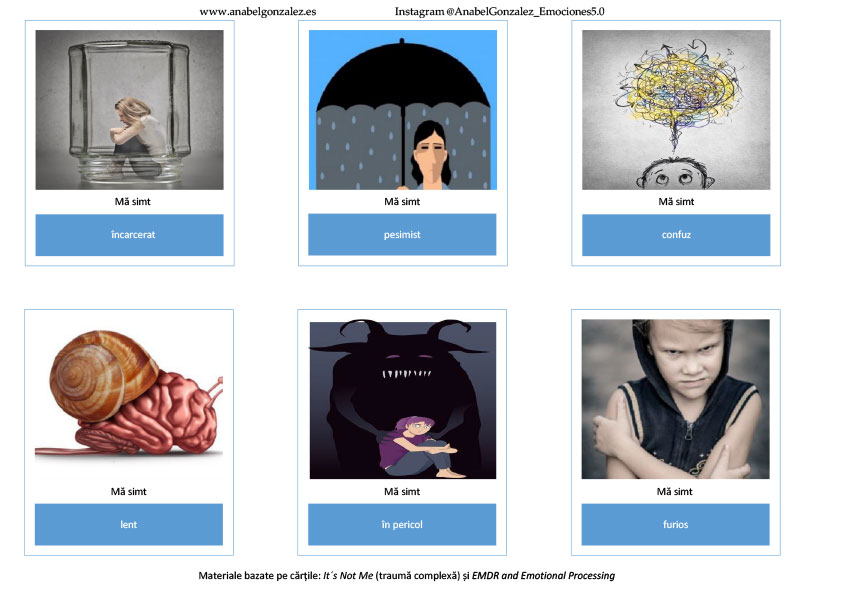
Therapeutic Cards · Romanian
Stari emotionale
Sisteme de protectie
Resurse
Auto-ingrijire
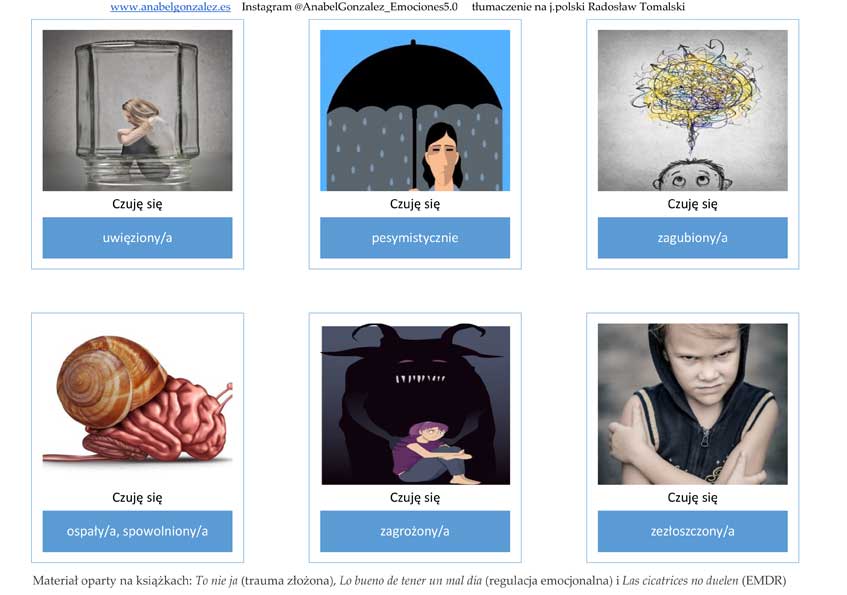
Therapeutic Cards · Polish
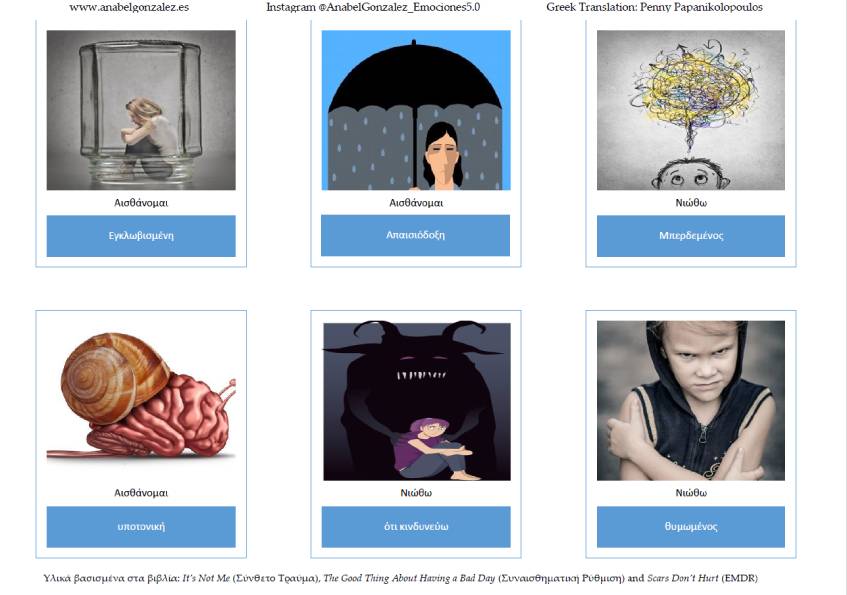
Therapeutic cards · Greek
Συναισθηματικές Καταστάσεις
Συστήματα Προστασίας
Αυτοφροντίδα
Eφόδια / Εφεδρείες
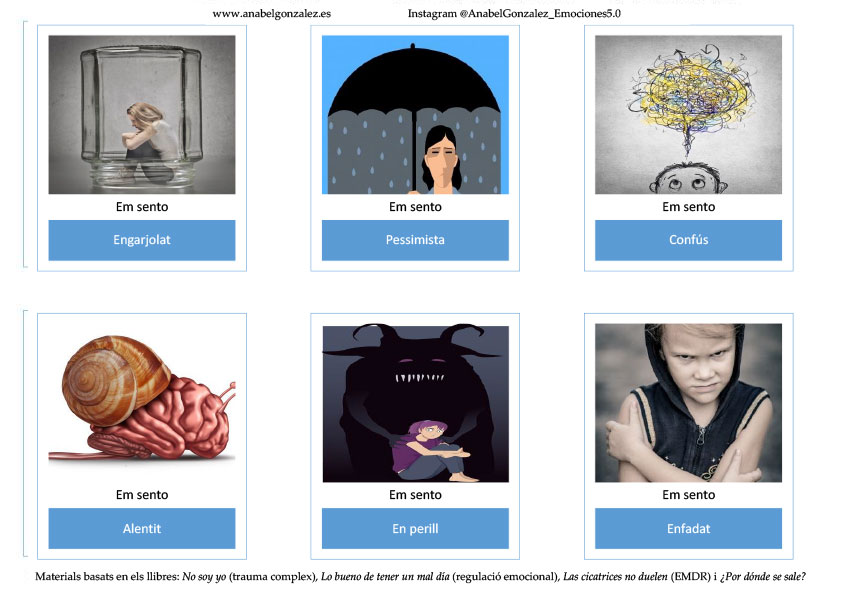
Therapeutic Cards · Catalán
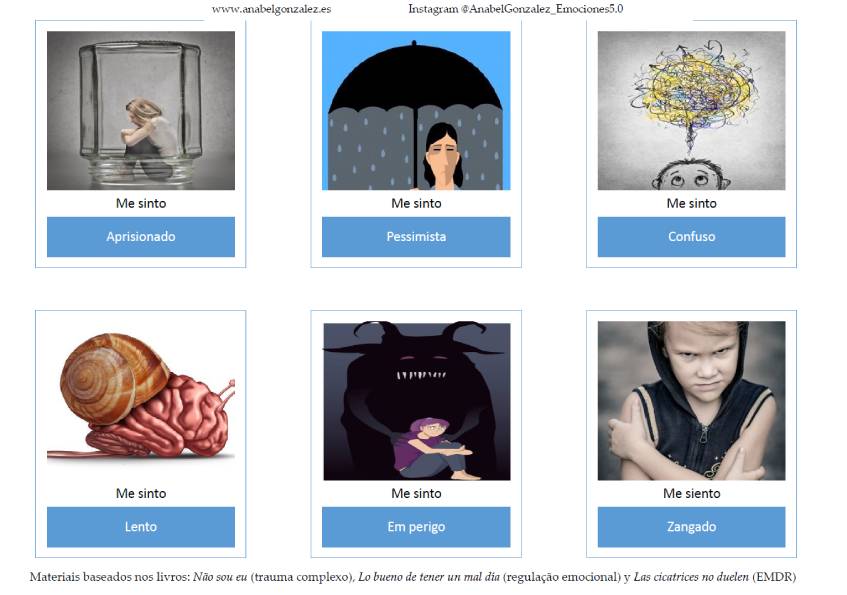
Therapeutic Cards · Portugues
Estados emocionais
Mecanismos de proteção
Recursos
Autocuidado
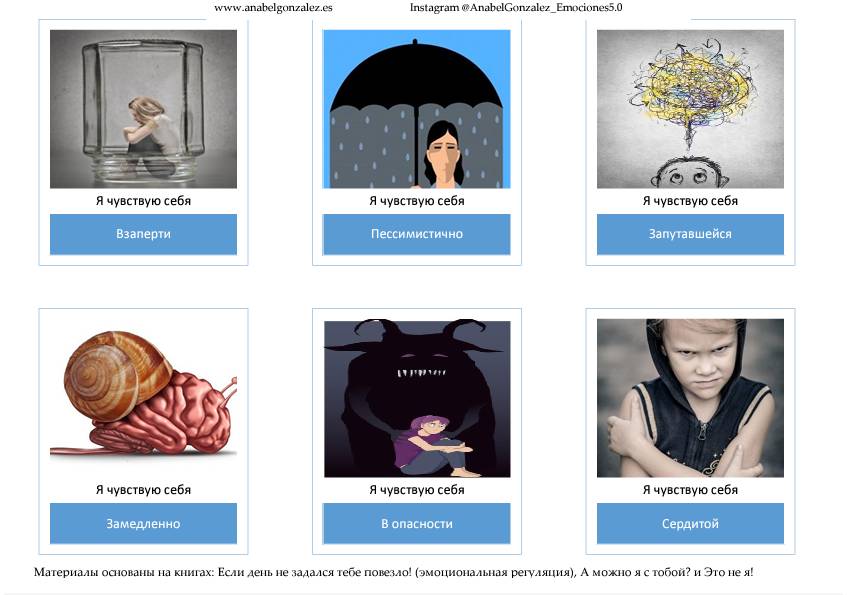
Therapeutic Cards · Русский
Эмоциональные-состояния
Системы защиты
Ресурсы
Звбота о себе

